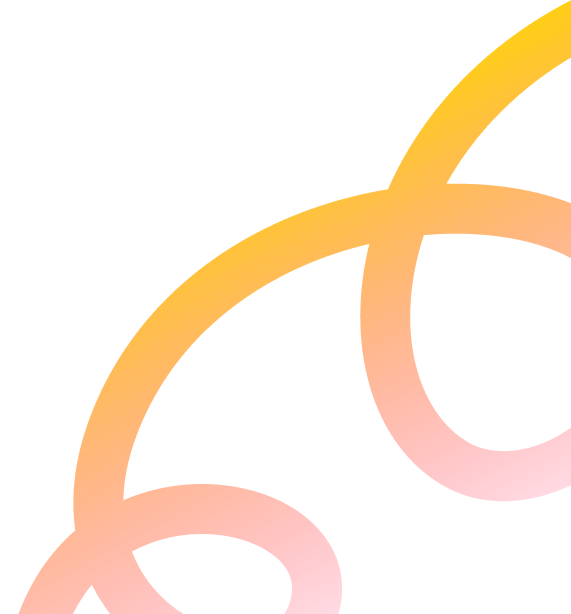
Top 10 HR & Company Culture Trends for 2024 (And Beyond)
This article is a syndication from The Influence Agency’s annual industry publication, The Yearbook. Learn more about key digital marketing trends in 2024 here.
Rapid advancements in technology, evolving employee expectations, and a greater emphasis on workplace inclusivity are propelling organizations into a future where HR practices and company culture are paramount for success. Your company needs to stay on top of these trends to ensure you’re offering your employees the best experience possible and remain a desirable place to work.
So, with some insight from our friends at The Influence Agency, here are our top predictions for HR and company culture trends we’re expecting to see in 2024 and beyond!
1. Improving Hybrid Work Environments
The hybrid working model has emerged as a significant trend as a post-pandemic world has reshaped the nature of work and employee expectations. This newly adopted model offers employees the flexibility to choose where and how they work, promoting a better work-life and even creating opportunities for an inclusive and diverse workforce.
With 32% of workers preferring a hybrid model—and 65% desiring to work remotely full-time—it’s clear why it would be in an organization’s best interest to improve these types of environments.
Not only will offering hybrid work options be a powerful tool for attracting and retaining top talent in a competitive job market in 2024, but a well-structured hybrid work model will lead to increased productivity and operational cost savings.
In order to improve hybrid models, companies will need to:
- Invest in tech and software that facilitates seamless collaboration, and task management across distributed teams.
- Customize hybrid work arrangements to suit specific roles and responsibilities.
- Define clear policies and guidelines that outline expectations related to remote work, office attendance, and performance evaluation.
- Provide training for employees on how to effectively navigate a hybrid model.
- Shift from time-based performance metrics to outcome-based measurement.
2. Focus on Remote Employee Engagement
Unlike hybrid work, remote work requires zero office attendance. While this work setup comes with miles and miles of benefits, it isn’t exactly free from drawbacks.
The main issue that people tend to face is remote employee engagement. With reduced social interaction and visibility, HR departments will be looking for more ways to maintain a connected and motivated remote workforce. Managing remote employees involves setting clear and realistic goals, providing regular feedback, as well as incentives, updated tools and training, and wellness initiatives. They’re part of the team—make them feel like it!
Overall, engaged employees are happier, more productive, and aligned with organizational goals, ultimately contributing to the overall success and sustainability of the business.
3. Human-Centric Culture
Amidst growing economic challenges, it’s more important than ever to emphasize a human-centric culture in the workplace. With unemployment rates growing and interest rates skyrocketing, every single company is going to have to compete with the effects of a tightening economy in 2024.
During economic downturns, layoffs and downsizing are considered cost-cutting measures, often leading to heightened stress and anxiety among employees who are concerned about job security, financial stability, and future employment opportunities. In 2023 alone, we saw 300,000 job cuts in the global marketing industry.
However, a human-centric culture that values its employees may explore alternatives to retain talent and boost employee morale, including reduced work hours, flexible schedules, or reskilling opportunities. Employees who feel supported and appreciated are more likely to weather economic storms, staying committed to their employers and contributing to a company’s recovery and future growth.
Remember to connect regularly and to keep the lines of communication open to foster a sense of approachability and trust that’s worth sticking around for.

4. Lower Employee Turnover Rates
We also expect to see lower turnover rates for most companies in 2024. Generally speaking, with a more unstable economic state and fewer jobs available, employees will be less likely to look for new employment opportunities.
Economic challenges also create an atmosphere of job insecurity, so employees will be more likely to choose the stability of their current employer—even if they are not entirely satisfied with their job.
This is why it’s important for employers and HR professionals to focus on offering their workforce incentives to stay. Make them feel as though they’re making the right choice in choosing to tough it at your company during tough times.
Just be sure you have the right team in place. A team is only as strong as its weakest link, and it’s very possible your weakest link won’t be going anywhere. Take it upon yourself to work with them to get the most out of their performance!
5. Defining the Employee Experience (EX)
In 2024 and beyond, we expect to see more HR professionals creating the blueprint for the employee journey. This is a comprehensive path that an employee travels through during their tenure at a company, from the initial interaction as a job seeker to their exit from the organization.
Employee journey mapping can be a helpful guide for pinpointing areas for improvement, aspects that call for commendation, and opportunities for value creation. Ultimately, this tool helps you strategize on how to attract and retain top talent by offering unparalleled motivation based on actual, real-life experience.
Curating a defined journey map opens doors for higher employee retention, increased engagement, and innovation. When employees can see the path ahead of them—and are excited about the possibilities—they’re going to give you their best!
6. Flexible Benefits and Compensation Plans
Gone are the days of one-size-fits-all benefits packages and compensation plans—flexible work arrangements are the future as employee needs are changing. What works for one of your team members may not be well-suited for another. Embrace that!
Personalized benefits are a great way to get people to stick around. When they feel as though the company is taking care of them and their unique needs, they’re more likely to feel positive about their workplace. Who wouldn’t?
Flexible compensation attracts top talent. For example, you may find that some employees will prefer to receive higher commission rates at the expense of a lower base pay, and you shouldn’t shy away from exploring these kinds of compensation plans.
7. Focus on Total Wellbeing
Over the last few years, there has been a huge emphasis on the importance of mental health in the workplace. However, wellbeing isn’t just about mental health; it’s about physical, emotional, social, and financial health too.
By supporting each of these areas in 2024, organizations will enhance productivity, decrease absenteeism, and boost employee morale. These are all desirable outcomes, especially as we navigate through the aforementioned tough times.
For example, total employee well-being depends on a healthy work-life balance. Let’s not glamourize overworking. Instead, normalize realistic deadlines and encourage teams to complete work via an efficient schedule. Completing projects at 2 a.m. isn’t good or sustainable!
8. Shift Towards a Skills-Based Workforce
There was a time when the traditional model of employment was driven by a fixed set of skills, but new trends in HR are effectively outdating this method. In 2024, there’s going to be an increased focus on skill development and upskilling.
People are being hired for their ability to learn and adapt rather than their current set of hard skills alone. This is especially true in companies that promote a continuous learning culture, often choosing to invest in the potential of their people.
Through continuous learning, skill development, and upskilling, companies can create leaders internally. The value of workshops is not just in the immediate benefits, but also in how they can put someone on the fast track to taking on new responsibilities.

9. The Power of Listening Leadership
Listening is often the difference between being a boss who directs and a leader who motivates—you probably know which of the two gets better results!
Effective leadership empowers its team by building a healthy company culture where everyone feels heard and valued. Additionally, it opens the door for employee feedback that can help companies grow and get better.
Listening is one thing, but putting things into action is a whole different story. There was a time when employees were encouraged to just put their heads down and work, but that time is certainly over in 2024 and beyond!
10. AI and Automation in HR
The rise of artificial intelligence is a turning point in the world of HR. From recruitment and onboarding to performance management and employee engagement, AI is changing the game in a big way.
AI can also be used to automate tedious tasks to save time and effort. There will be an undeniable uptick in the usage of chatbots to streamline administrative tasks and provide customized employee experiences. This way, HR professionals can spend more time on what matters: working with people to create better employee experiences.
Furthermore, as it pertains to hiring talent and employee screening, HR automation presents plenty of opportunities to limit the influence of implicit biases. This could help further support valuable diversity, equity, and inclusion-based hiring initiatives.
The Future of HR Is Bright With Ad Culture
Check out the work of The Influence Agency if you want to see a team firing on all cylinders. You don’t become the experts on all things digital marketing without having a keen eye for hiring and talent development—the results speak for themselves!
So, while human resources trends come and go, enlisting the help of an expert recruitment agency like Ad Culture to hire top-notch talent is timeless.
Whether you’re looking to add marketing specialists, technical wizards, or creative web designers to your team, we’ll find you the best candidates. We’re talking about the kind of rockstars that stick around to elevate your work and culture.
Contact us today to kickstart your new year with some great hires!








